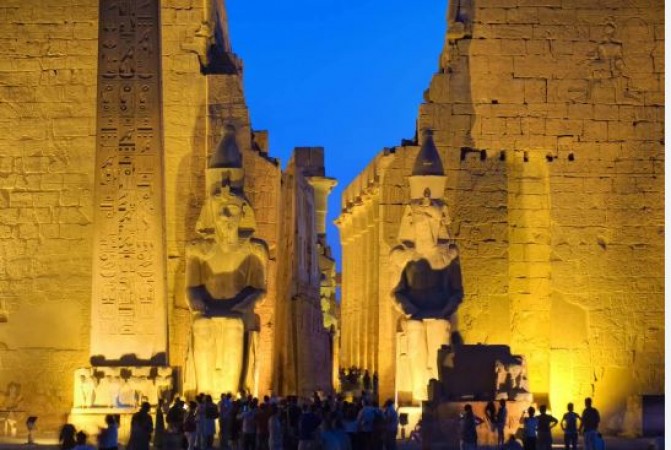
Luxor, situated on the east bank of the Nile River in Egypt, stands as a timeless testament to human civilization's ability to create lasting legacies. Formerly known as Thebes, Luxor is often referred to as the "world's greatest open-air museum." It is an archaeological treasure trove and a mesmerizing destination that attracts millions of visitors from all corners of the globe. Encompassing a rich tapestry of history, culture, and art, this majestic city offers a window into the splendor of ancient Egypt. In this exploration of Luxor, we delve into its captivating past, vibrant present, and promising future.
Luxor's historical significance lies in its ancient Egyptian roots. It was once the political and religious capital of Egypt during the New Kingdom (c. 1550–1070 BCE) and the seat of power for Pharaohs. Its grandeur peaked during the reign of Amenhotep III and Ramses II, both of whom left behind spectacular monuments. The city became a center of religious worship, housing the Karnak and Luxor Temples, which remain icons of ancient Egyptian architecture.
Also Read: Discover the Gems of Port Augusta: Top Places to Visit and Explore
The Luxor Temple, constructed around 1400 BCE, is a testament to the architectural prowess of the time. Dedicated to the Theban Triad—Amun, Mut, and Khonsu—it was primarily used for religious festivals and ceremonies. The temple's grand colonnades, majestic statues, and intricate carvings leave visitors awe-struck, especially during the annual Opet Festival, a reenactment of ancient religious rites.
The Karnak Temple Complex, on the other hand, is an astonishing vastness of sacred buildings and obelisks. The construction of Karnak began around 2055 BCE and spanned over 2,000 years, making it an amalgamation of various architectural styles and influences. The Great Hypostyle Hall, with its 134 massive columns, is an engineering marvel that transports visitors to a bygone era of Egyptian grandeur.
Also Read: Mont Saint-Michel, France: A Mystical Island of History and Wonder"
Located on the west bank of the Nile, the Valley of the Kings and Queens houses the tombs of ancient Egyptian pharaohs, queens, and nobles. The Valley of the Kings, in particular, is renowned for its impressive tombs, including the tomb of Tutankhamun, the only pharaoh's tomb discovered mostly intact. The tomb's unearthing by Howard Carter in 1922 captivated the world, unveiling a treasure trove of ancient artifacts and the famous golden mask of Tutankhamun.
Beyond its historical splendors, Luxor offers a bustling modern city with a vibrant local culture and welcoming atmosphere. Tourists and locals alike can explore the lively souks (markets), where one can immerse themselves in the colorful sights and sounds while shopping for traditional crafts and souvenirs. The local cuisine tantalizes the taste buds with a delightful blend of Middle Eastern and North African flavors.
Also Read: Exploring the Enchanting Land of Finland: A Nordic Jewel
While Luxor's rich historical sites continue to enchant visitors, the city faces challenges in preserving its ancient treasures. Tourist footfall, while crucial for the local economy, places stress on delicate archaeological sites. Efforts are being made to strike a balance between promoting tourism and safeguarding the city's heritage. Conservation projects and archaeological research remain a top priority to ensure the sustainability of Luxor's cultural legacy.
Luxor's future appears promising, as local and international initiatives continue to support its preservation and development. Sustainable tourism practices are being adopted to minimize the impact on historical sites. Collaborative efforts among international organizations, Egypt's Ministry of Antiquities, and local communities ensure that Luxor's legacy is passed on to future generations.
Also Read: Hollywood Sikh Temple: Promoting Interfaith Dialogue and Understanding
Luxor, Egypt, is a captivating destination that unveils the magnificence of ancient Egyptian civilization. With its majestic temples, grand tombs, and vibrant culture, it offers a profound and immersive experience for travelers and history enthusiasts. As Luxor looks towards a promising future, it remains an essential pillar of Egypt's cultural heritage, inspiring awe and wonder in all who visit this mesmerizing city of kings.
Also Read: San Jose Gurdwara: Sikh Sanctuar